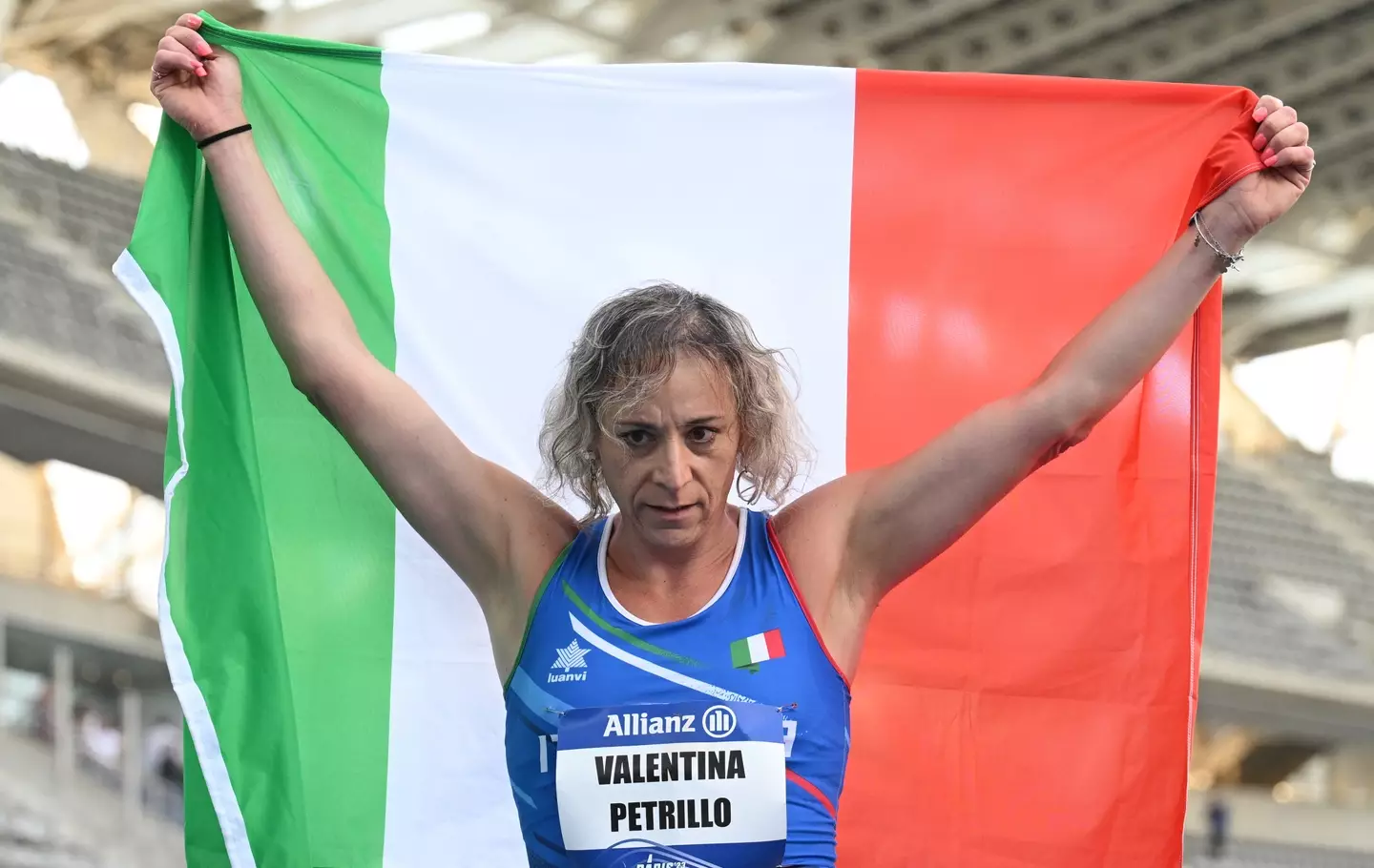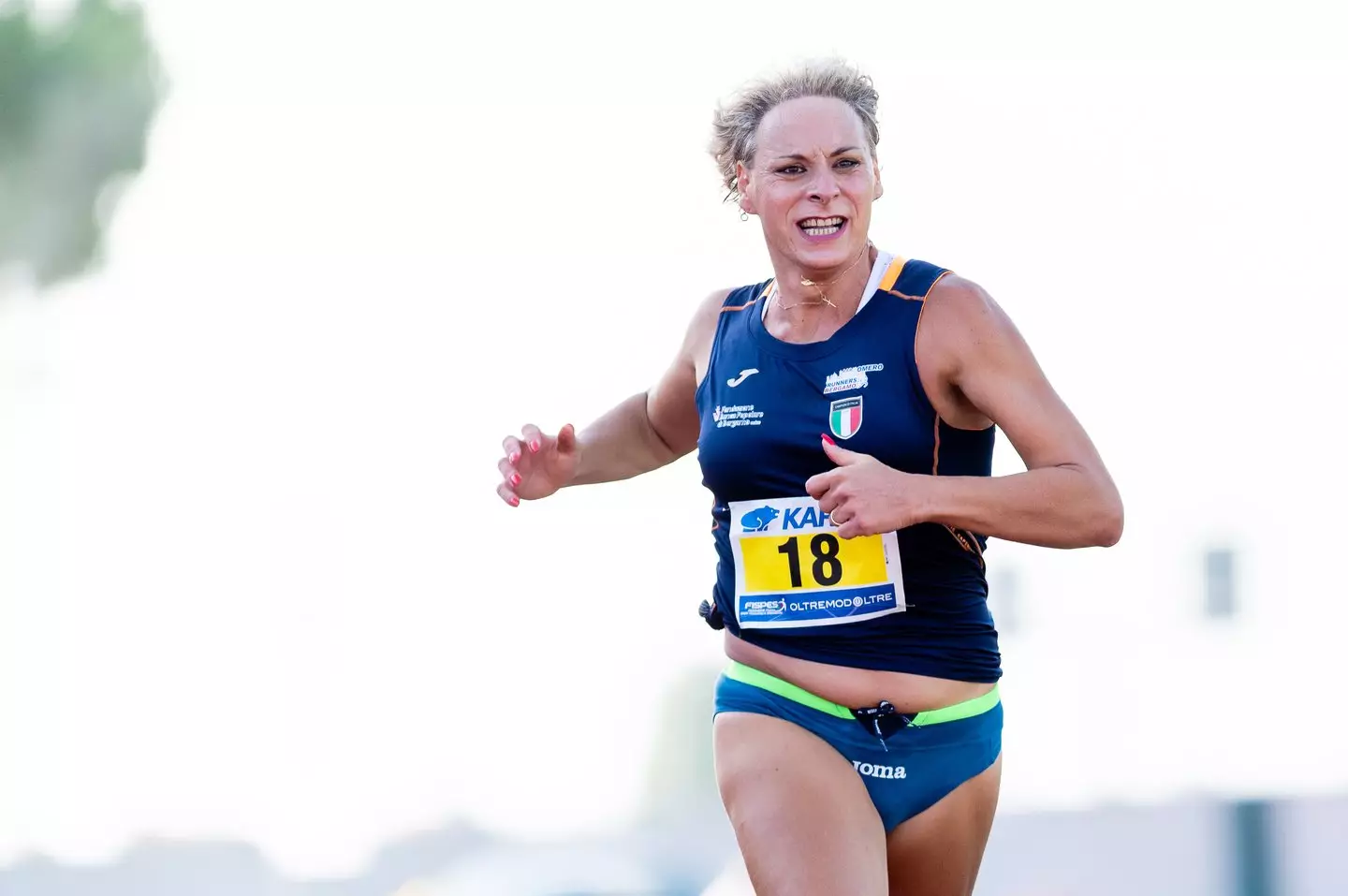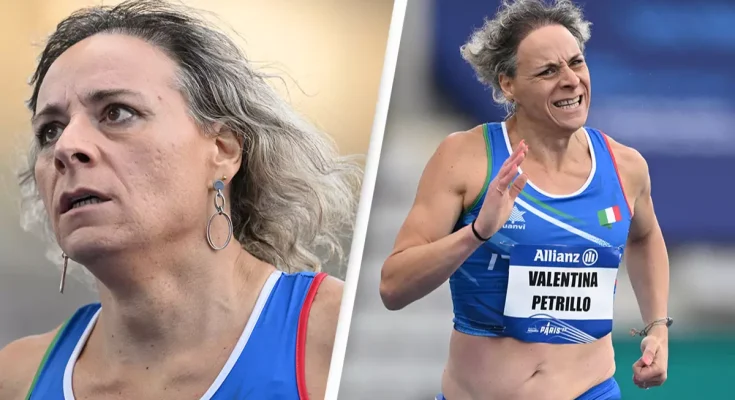Sprinter Valentina Petrillo has spoken out about the ‘historic value’ of being selected to represent Italy in the 2024 Paralympics
Valentina Petrillo is set to become the first openly transgender athlete to compete in the Paralympic Games.
Italian sprinter Valentina Petrillo, 50, has been selected to compete in the 2024 Paris Paralympics Games in the T12 200m and 400m.
The athlete was diagnosed with Stargardt’s syndrome at the age of 14.

Valentina Petrillo will be the first openly transgender athlete to compete in the Paralympics (Matthias Hangst/Getty Images)
Stargardt’s syndrome is ‘an eye disease that causes vision loss in children and young adults. It is an inherited disease, meaning it is passed on to children from their parents,’ the American Academy of Ophthalmology explains.
It continues: “Stargardt disease is often called juvenile macular dystrophy. In people with Stargardt disease, special light-sensing cells in the macula, called photoreceptors, die off. Central, or detailed, vision becomes blurry or has dark areas. It may also be difficult to see colors well.”
And according to reports from The Guardian, Petrillo’s visual range is one fiftieth of what the standard range is.
In 2023, World Athletics banned any transgender woman from competing in world ranking competitions if they’d gone through puberty, albeit adding it was ‘not saying no forever’ as further research is being conducted into guidelines for transgender eligibility, BBC reported.
However, World Para Athletics has not set such a rule, with its regulations stating that any athlete who is legally recognized as a woman can compete.

Petrillo started medically transitioning in 2019 (Pamela Rovaris/Archivio Pamela Rovaris/Mondadori Portfolio via Getty Images)
Petrillo told the BBC she knew she was a woman from the age of nine and started living as a woman in 2018, before beginning hormone therapy in 2019.
Prior to starting her medical transition, she’d raced in the male T12 category for athletes with visual impairment between 2015 and 2018 and won 11 national titles.
Last year, the athlete competed at the World Para Athletics Championships in the women’s category and won two bronze medals.
During an interview in Paris last week, International Paralympic Committee (IPC), Andrew Parsons responded to news of Petrillo being selected to represent her country.
He said: “For the moment World Para Athletics rules allow her to compete, so she will be welcome as any other athlete. [Petrillo] will be welcome as any other athlete. I think it is just fair that we treat [transgender athletes] respectfully.”
And Petrillo has since addressed being selected to represent her country at the upcoming Paralympics.

Valentina Petrillo will represent Italy (Marco Mantovani/Getty Images)
Petrillo told BBC Sport she’s been ‘waiting for this day for three years’ and has ‘done everything possible to earn it’.
She also thanked the Italian Paralympic Federation and the Italian Paralympic Committee for ‘having always believed in [her]’.
“Above all as a person as well as an athlete,” she added. “The historic value of being the first transgender woman to compete at the Paralympics is an important symbol of inclusion. This is not a lifestyle choice for me, this is who I am.
“And the way I am, like all transgender people who do not feel they belong to their biological gender, should not be discriminated against in the same way that race, religion or political ideology should not be discriminated against.
“And sport that imposes rules based on a binary way of thinking does not factor this in. It is sport that has to find a solution and excluding transgender athletes is clearly not that solution.”
Petrillo resolved: “Ultimately, in the seven years in which transgender athletes have been able to compete in the female category, the number of instances in which they have stood out for their sporting results have been very few and far between.”



